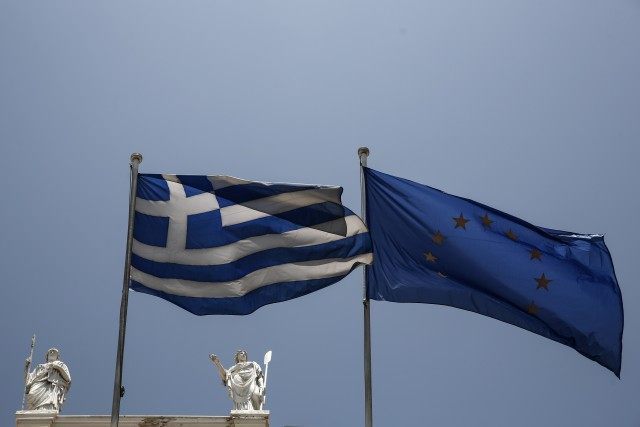LONDON, United Kingdom – EU chiefs are so ideologically committed to the euro that they may not let Greece leave the currency even if it defaults on its debts, Germany’s leading Eurosceptic has said.
Speaking to a meeting of the Bruges Group in the UK Parliament, Professor Bernd Lucke, a respected economist and founder of the Eurosceptic Alternative für Deutschland (AfD) party, said the political nature of the euro means the European Central Bank (ECB) would prefer to subject the Greek people to even more suffering rather than let them exit the currency.
While most people believe the heavily indebted nation will have to leave the euro currency if it defaults in its debt payments, Professor Lucke warned that there are plans to keep it come what may.
This would be, Lucke said, “precisely the wrong decision to take” because so many of Greece’s troubles are tied to the currency. The euro is “grossly overvalued for Greece which makes its industries uncompetitive”.
Professor Lucke added that the euro cannot survive in its current state and that there are only two possible solutions – either the EU becomes even more centralised, or the euro is broken up. The latter option, he said, is unlikely.
“One possibility is that economic policy and fiscal policy are also centralised and more powers are shifted to Brussels.”
Lucke said the upcoming Five Presidents Report – written by the presidents of the European Central Bank, Commission, Parliament, Council and the Eurogroup – will be of the opinion that the common currency must be preserved come what may, and that to do this the EU must “move from coordination to actually controlling economic policy.”
Euro bosses may even try to force a common minimum wage on the continent, requiring countries who don’t have any minimum wage policy adopt one. They may also try to force common unemployment insurance across Europe in which economically more successful countries will fund benefits in poorer member states.
“All these developments… lead to state building on the European level. They lead to a loss of sovereignty of the member countries. This is actually what is wanted by many politicians in Brussels; this is their vision of Europe.”
“The euro is a political project. The euro is an instrument for fostering European integration and [they believe] we must not give up on this instrument.”

COMMENTS
Please let us know if you're having issues with commenting.